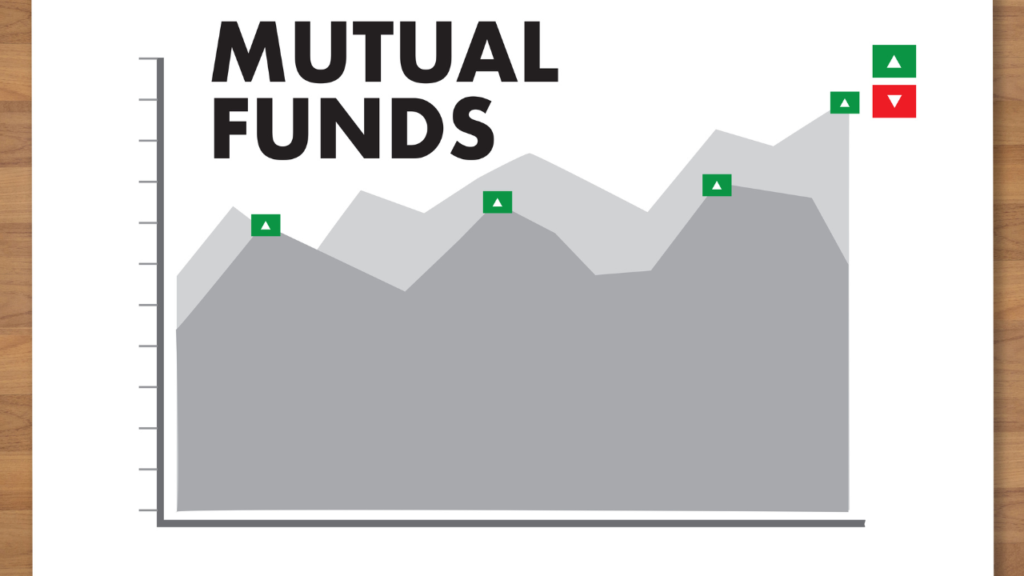
Many people believe that investing in the stock market is a terrific way to build wealth over time, but it is critical to recognize the dangers involved and have a well-thought-out plan in place before starting up. New investors might sometimes fall victim to deceptive marketing methods that promise large or guaranteed returns. Investors should realise that no one can promise that they will make money by investing in markets.
Investors are often urged by stock exchanges, SEBI, and other licensed brokers of the market to beware being enticed by misleading claims of assured profits by the investment advisors.
Why is it better to get a professional advice when it comes to investing:
Many individuals struggle from behavioral biases, which are the propensity to assume we are superior at doing something than we genuinely are, especially when it comes to money management. People who work full-time or own a business lack the time, effort, and at times the desire to handle their finances. Many people lack the necessary knowledge. Many behavioural concerns, such as risk aversion, sneak in while making financial decisions, further limiting one’s capacity to do a reasonably good job. Because the odds are piled so severely against us, most investors would be wise to delegate the task of handling their own funds to a professional, such as a Securities and Exchange Board of India (SEBI)-Registered Investment Adviser (RIA).

A poll found that 40% of men and 27% of women make investing choices without approaching a professional advisor. This was an internet poll, therefore the sample was skewed more toward educated and informed people. However, in an offline poll, the percentage of persons who do not visit a financial counsellor may be greater.
If you are young, you may only need to set up a simple portfolio once. Mature investors with substantial portfolios, on the other hand, demand regular evaluations and persistent hand-holding. As a result, it is preferable to get expert guidance when establishing or managing a portfolio depending on your unique financial position.
What is the difference between a RIA and MFD?
An RIA (Registered Investment Adviser) is a person or entity that has been approved by the SEBI to give financial advice. RIAs owe it to their clients to provide investment advice that is in their best interests.
They are not compensated for the items they advocate. Their customers pay them a fee, thus it is in their best interest to fulfill their responsibilities. If the consumer is dissatisfied with the service, he may easily quit paying the charge. Mutual Fund Distributors (MFDs) are licensed with the Association of Mutual Funds in India (AMFI) to market mutual funds. Their income is derived from commissions earned on mutual fund sales.
It is advisable to separate investing advice from product purchases. Investment products are not always the best solution to investors’ problems.

Purchasing mutual funds based on the advise of an MFD might be vulnerable. Because the advisor’s income is derived from the product, there is always the possibility that the products he suggests will be influenced by the pay he obtains. The yearly fee MFDs get from some plans might be up to ten times that of others. This offers an incentive to promote items that pay bigger fees. MFDs may prefer equity funds over debt funds, active funds over passive funds, sector funds over flexicaps, small cap funds over big cap funds, credit risk funds over liquid, and other schemes of mutual fund companies with vigorous sales tactics and larger fees. Yet, many investment products that charge a greater commission may be riskier. An MFD may provide funds from a select group of mutual fund companies. He’s going to keep pushing those. This might have an impact on the client’s portfolio performance.
An MFD may also fail to conduct a thorough examination of the client’s financial objectives and risk tolerance, instead focusing on the random selling of products. Poor product choices and portfolio management can have severe consequences.
Which fee structure works best?
A fixed fee or a percentage of the client’s assets under management (AUM) is charged by RIAs. A flat yearly charge is agreed upon between the investor and the adviser.

RIAs that charge fees based on AUM may be motivated to prohibit you from lowering the AUM. For example, they may counsel you not to sell your holdings to pay off high-interest debt because doing so would lower their fee.
Pick a fixed fee or % of AUM approach according to your means, the RIA’s commitment, and the service you receive in return. Make it clear why you need an advisor. The pricing structure should be determined by the type of guidance you want. Seek assistance from somebody you believe can help you find a solution. When obtaining professional counsel, choose one that prioritizes risk management and goal achievement.
Consider an RIA’s expertise, repute, experience, and charges. Before offering guidance, ensure that the counsellor has assessed the full problem.
Watch out for the red flags:
Here are some pointers for investors to consider while selecting an investment adviser and while interacting with such advisors.

Do’s:
- Only deal with SEBI-registered Investment Advisors, and always ask for their SEBI license number. Additionally, be certain that the Investment Advisor has a current registration certificate. Check out the list of all SEBI licensed Investment Advisors on the SEBI website.
- Be completely knowledgeable about the product in which you are investing.
- Understand the brokerage and other fees assessed by the broker.
- Replace the adviser if you do not receive the desired improvement. The money charged might be exorbitant, not proportionate with the quality or breadth of the advise provided, or the advisor may be overburdened with too many clients.
- Pay your Investment Adviser their advising fees only and pay them solely through banking channels, and save fully signed receipts outlining the specifics of your payments. Avoid paying your advisor in cash.
- Before taking investing advice, always get a risk assessment. Investment Advisors should give advice based solely on your risk profile and take into consideration accessible investment choices.
- Before relying on advice, ask any obvious questions and settle your uncertainties with your Investment Advisor.
- When investing money, consider the risk-return profile of the investment, as well as the accessibility and safety elements.
- Get the conditions of sale in writing, stamped and signed. Before engaging with any Investment Advisor, thoroughly review these terms and conditions, particularly those pertaining to advisory fees, advisory plans, recommendation categories, and so on.
- Be cautious with your purchases and contact the proper officials if you have any concerns or problems with those investments.
Don’ts:
- Never rely on written or verbal promises of guaranteed returns in the equity and derivatives markets.
- Do not invest in any schemes run by an organisation or a person who are not registered with SEBI.
- According to the SEBI Investment Advisor Guidelines of 2013 and the SEBI Mutual Fund Regulations, no Mutual Fund Company, distributor, or investment advisor is allowed to make any guarantees or promises regarding the types of returns either of them may generate. If the description of your investment advising company uses language implying a return guarantee through a promise or offering “tips,” this is a red flag for speculative guidance rather than comprehensive and thorough study.
- Avoid following stock recommendations that are presented as investing advice.
- Don’t provide your money to the financial adviser for investments.
- Avoid being seduced by misleading marketing or market rumours.
- Avoid falling for any limited-time discounts, incentives, gifts, etc. that investment advisers may offer.
- Take your time when making investments that don’t align with your risk tolerance and financial objectives.
- It’s a sign that the advisor is receiving commissions from products if he frequently switches your investments.
- Avoid the advisor who guarantees above-market returns.
Conclusion:

Consider seeing a financial counsellor or other expert to help you establish a really well investment strategy if you’re unfamiliar with investing or have a sizable quantity of money to invest. But, before investing your money, make very sure you do your homework and study on the adviser who advises you to invest in those assets as well as the asset in which you want to invest. You can use the information from this article’s prior sections to exercise care while interacting with investment advisors.
Don’t allow sentiments influence your choice of investments. Follow your investing plan and refrain from deciding hastily based on short-term market volatility, deceptive promises like “market beating returns,” or any other alluring advice.
In the end, investors must keep in mind that: If your adviser uses phrases like “double your money,” “guaranteed profits,” and sounds overly tempting, go as far away from him as you can since they might be hooks to snare the investors within it.





